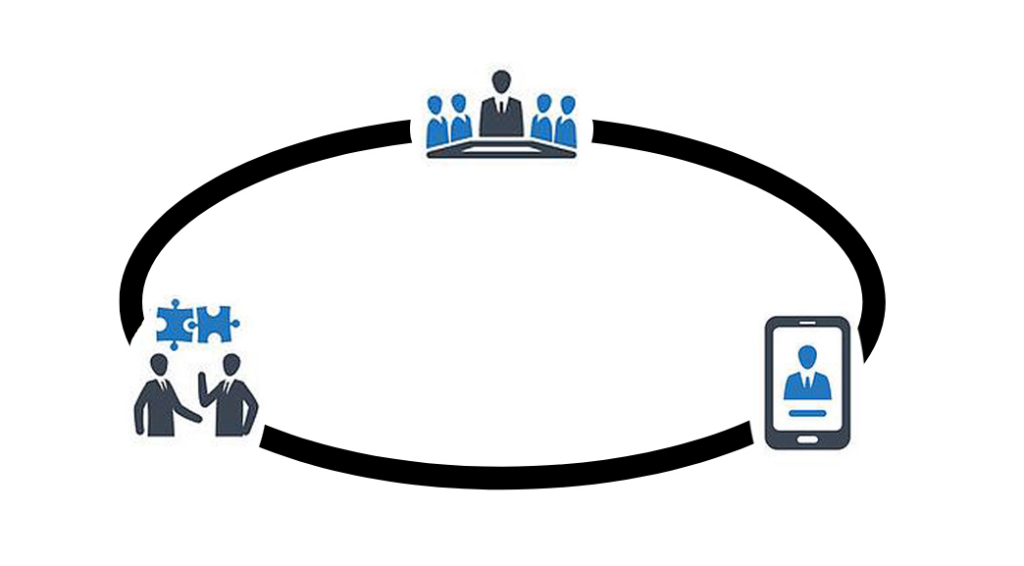It is fairly easy to hold a lecture or a training session. It is much more difficult to design and deliver a learning experience that engages a group of managers. The greatest challenge, however, is to build a development process that truly results in change of behaviour.
Ten years ago, we decided not to sell one-off training events any longer, and provided development programs only. Moreover, we insisted on a “blended” approach combining a series of training days with follow-up coaching that focuses on the individual level and effectively fosters turning knew knowledge into action. More than 70 groups of managers have gone through our Deliberate Leadership program, serving us with plenty of anecdotal evidence that this approach yields lots of observable changes in individual behaviour, as well as improvements in interpersonal relationships and leadership culture within our client companies. However, the proof derived from feedback and was not supported by data.
Paralelly, in 2014, Deutsche Telekom approached and challenged us to create a digital mentoring tool that provides in-situ people management help for hundreds of their middle managers and senior leaders. They needed support that is easy to access (mobile phone), takes as little time as possible (microlearning), helps transferring existing or knew knowledge into practice (through commitments), and is fun to use (with humour and gamification). After a year of intensive cooperation, the MVP (minimum viable product) was ready for DT to implement. Since then, Act2Manage app has had several new versions released and boasts a clientele from various industry sectors, from financial services to automotive. The statistics module showed unequivocal results all across our corporate customers: usage rates are distributed according to a power law graph.
Explained more simply, it follows the Pareto principle, i.e. 20% of users are responsible for 80% of the learning activity. No matter if we looked at our more motivated and diligent participant groups or the less eager ones, we found the same distribution pattern. (Activity level in learning, by the way, is not the only thing at the workplace that follows a power law distribution. As Laszlo Bock, former SVP of People Operations at Google pointed out in his book based on their own data, the distribution of human performance does not follow a bell curve either, but a power law graph.) With that said, we were really excited to find out how learning intensity can be increased. What we found is that facilitation with gamification elements and making learning content more relevant for managers by linking it to current company initiatives and challenges do help. But we wanted to make even more impact.
Research findings
Therefore, in 2019, we decided to step forward in our blended learning approach, combining our Deliberate Leadership program involving skills development training and follow-up coaching with Act2Manage, the mobile microlearning solution. We worked with three multinational companies and commenced 10 leadership development groups with 111 participants. Now we had the power of Act2Manage statistics function at hand to support our research effort. Here is what we have found:
Digital microlearning tool increases the number of commitments made
At the end of each Deliberate Leadership module, participants make specific commitments to change or implement in practice whatever they found relevant from the training session. Follow-up is administered in Act2Manage app, and experiences are discussed at the coaching session. Participants with access to our digital tool have on average made 50% more commitments per module compared to participants of earlier programs where this service was not provided.
Commitments tend to get completed
Participants are encouraged to follow-up their commitments in Act2Manage, making use of its various reminder features as well. Close to 2/3 of all commitments are reported to be completed, therefore the majority of changes or specific action steps have most likely been implemented.
In-person development program doubles high-activity app user proportion
At each customer company we were really delighted to see that the proportion of high-activity app users has increased from the 20% of our benchmark data to the average of 40%. So twice as many participants decided to really plunge into the pool of intensive learning, compared to other client companies, where the application was provided without the Deliberate Leadership program.
Participants get a taste for learning more
Interestingly enough, 80% of the most popular topic/question top lists in the app are filled with topics that are not in the curriculum of our Deliberate Leadership program. Users were browsing suggestions and making commitments from contents about Change Management, Personal Branding, Building Culture, Innovation or Building Commitment.
While the term “blended learning” has been around for about twenty years, there is little consensus about its definition, and there are more stories and opinions than data that underpin its effectiveness. We believe that our recent study is one step forward in discovering how the use of technology combined with the personal involvement of experienced and skilful learning facilitators can really make an impact, and eventually contribute to the development of the management culture in various businesses and organisations.







